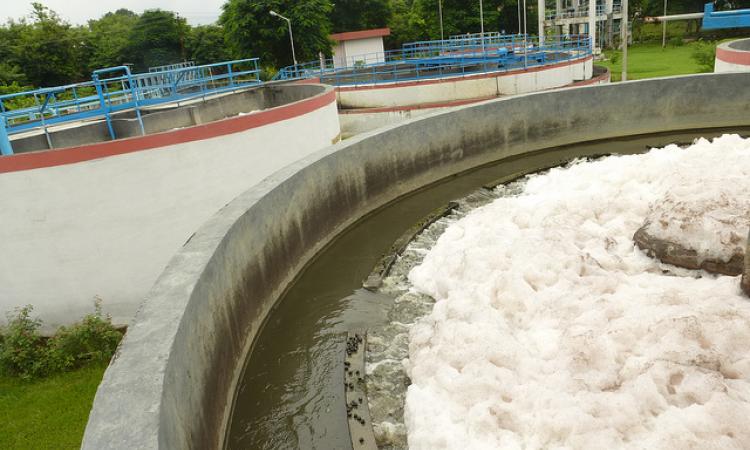
Civic bodies across Maharashtra to treat and utilise STP water better
Following an unforgiving summer, civic corporations across Maharashtra have planned to use treated water from Common Effluent Treatment Plants (CETP) and Sewage Treatment Plants (STP) in a more productive manner. The Navi Mumbai Municipal Corporation, Panvel Municipal Council and CIDCO are looking to implement greywater recycling projects under the AMRUT scheme in a bid to minimise wastage of quality drinking water for non-potable uses. The Maharashtra Industrial Development Corporation looks to increase the treatment potential of CETPs in the industrial belts of Badlapur, Ambernath and Dombivili.
Brothers gift toilets to sisters on rakshabandhan in Uttar Pradesh
This rakshabandhan, girls living in villages around Lucknow have demanded a novel gift from their brothers--a toilet at home. This campaign, endorsed by the Lucknow district administration, was supported on the ground by organisations like Water Aid and Vatsalya. Brothers pledged to construct toilets for their sisters and filed applications requesting for one under the Swachh Bharat Abhiyan. The district administration has promised to ensure that these applications are processed at the earliest to encourage such demand-driven development.
MoRD survey reveals discrepancies in toilet construction claims and actual numbers
A field survey commissioned by the ministry of rural development in select districts has revealed a huge gap between the stated and the actual number of toilets constructed. A total of 24.22 lakh households were covered by national-level monitors deputed to conduct the toilet survey. The report reveals a gap of over 41 percent in the states of Manipur and Arunachal Pradesh while the mismatch is 28 percent in Rajasthan. Overall, 51.46 percent of the sample households were found to possess individual latrines, while solid and liquid waste management were non-existent in nearly 76 percent of the surveyed villages.
Government mulls penalising people littering in urban areas
In order to make the urban component of the Swachh Bharat Mission a success, the government is considering the imposition of fines for littering in public places. This, along with putting in place the necessary infrastructure and initiating behaviour change, is part of a three-pronged strategy to ensure cleanliness in urban areas. The ministry of urban development works with the intention of eliminating open defecation and improving solid and liquid waste management in urban areas by 2019.
Newly launched Swachhata app and helpline hold key to SBM's success
The launch of two IT-backed solutions--Swachhata mobile app and Swachhata helpline--could help keep track of the Swachh Bharat Mission’s progress and ensure its success. The town and municipal corporations have shown interest in adopting these tech-interventions to improve citizen participation and streamline day-to-day activities. These interventions ensure citizens have a space to voice out their grievances and allow officials the occasion and time for timely redressal.
This is a roundup of important sanitation related news published between August 13 and 19, 2016